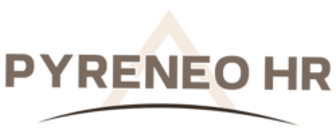Why structuring your HR is a strategic lever for startup growth
In the early months of a startup, everything moves (very... sometimes too) fast. You test, hire, launch, iterate. And more often than not, HR matters fall to the bottom of the list — buried under product, market, or funding urgency. Yet structuring your Human Resources early in your growth journey isn’t a luxury — it’s a strategic lever, often critical for what comes next.
4/7/20251 min read


Growing without structure = running toward breakdown
At first, everything feels smooth: a tight-knit team, informal conversations, a culture that forms “naturally.”
But once you hit 10, 15, or 20 people, the first signs of friction appear:
Poorly defined recruitment
Vague onboarding that slows productivity
Unspoken rules that create a sense of unfairness
Growing mental load for the founders
Blurry HR signals no one knows how to handle
Growth without structure quickly becomes a source of tension.
Structuring ≠ bureaucracy
Many founders fear becoming “too corporate” when it comes to HR.
But structuring doesn’t mean building a rigid machine. It simply means:
Laying clear foundations (contracts, processes, tools)
Formalizing best practices (onboarding, reviews, feedback)
Clarifying company culture and managerial expectations
Ensuring legal and social compliance
Delegating smartly to focus on product and customers
It’s about creating a framework that supports growth, not slows it down.
The 3 HR pillars to build before hitting 30 employees
A clear and efficient onboarding
So each new team member knows where they’re landing, what’s expected, and how to integrate quickly.A solid legal framework
To avoid surprises: compliant contracts, remote work policies, internal rules, social compliance.A first layer of HR culture
Even without a dedicated HR team, setting up feedback, listening, and structured management early makes a big difference.
What happens next?
From 30 to 50 employees, the question won’t be “Should we structure HR?”
It will be “Why didn’t we do it sooner?”
Setting up an HR function, even fractional or external, can help anticipate problems, lighten the founders’ load, and bring peace of mind.
At Pyreneo HR, I help startups structure their HR without losing agility, by putting the right foundations in place at the right time.
Want to talk about it? Get in touch
